On basis of Le-Chatelier principle explain how can the temperature and pressure be adjusted to increase the yield of ammonia in the following reaction.
N2(g)+3H2(g)⇔2NH3(g),ΔH=−92.38kJ mol−1
What will be the effect of addition of argon to the above reaction mixture at constant volume ?
N2(g)+3H2(g)⇔2NH3(g),ΔH=−92.38kJ mol−1
It is an exothermic process as ΔH is negative.
Effect of temperature : As per to Le-Chatelier.s principle, low temperature is favourable for high yield of ammonia, but practically very low temperatures slow down the reaction. So, optimum temperature 700 K is favourable in attainment of equilibrium.
Effect of pressure : Similarly, high pressure about 200 atm is favourable for high yield of ammonia. On increasing pressure, reaction goes in the forward direction because the number of moles decreases in the forward direction.
Addition of argon : At constant volume addition of argon does not affect the equilibrium because it does not change the partial pressures of the reactants or products involved in the reaction and the equilibrium remains undisturbed.
Topper's Solved these Questions
- EQUILIBRIUMBOOK - KUMAR PRAKASHANCHAPTER - EQUILIBRIUMEXERCISE - Question Paper from Module
7 Videos
- EQUILIBRIUMBOOK - KUMAR PRAKASHANCHAPTER - EQUILIBRIUMEXERCISE - SECTION-D NCERT Exemplar Problems (Assertions and Reason)
7 Videos
- ENVIRONMENT CHEMISTRY BOOK - KUMAR PRAKASHANCHAPTER - ENVIRONMENT CHEMISTRY EXERCISE - Question For Module (Section-C)
1 Videos
- HYDROCARBONSBOOK - KUMAR PRAKASHANCHAPTER - HYDROCARBONSEXERCISE - (Questions for Module (Section - D))
1 Videos
Similar Questions
On the basis of Le Chatelier principle explain how temperature and pressure can be adjusted to increase the yield of ammonia int he following reaction.
N2(g)+3H2(g)⇔2NH3(g),ΔH=−92.38KJMol−1
What will be the effect of addition of argon to the avove mixture at cosntant volume ?
View SolutionFor the reaction
N2(g)+3H2(g)⇔2NH3(g),ΔH=?
View Solution
Knowledge Check
For the reaction
N2(g)+3H2(g)⇔2NH3(g),ΔH=?AΔE+2RTBΔE−2RTCΔE+RTDΔE−RTThe % yield of ammonia as a function of time in the reaction N2(g)+3H2(g)⇔2NH3(g),(g)ΔH<0 at (P,T1) is given below
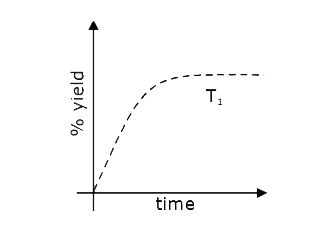 A
A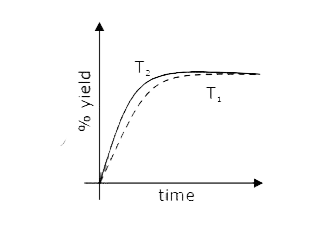 B
B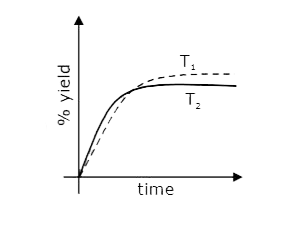 C
C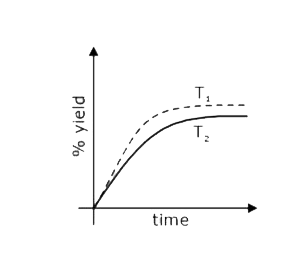 D
D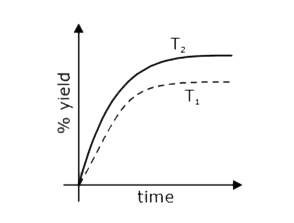
In reaction N2(g)+3H2(g)⇔2NH3(g),ΔH=−93.6kJ/mole, the yield of ammonia does not increase when
APressure is increasedBTemperature is loweredCPressure is loweredDVolume of the reaction vessel is decreased
State and explain Le Chatelier's principle. Explain the effect of change in concentration, pressure and temperature on the following reactions.
N2(g)+3H2(g)⇔2NH3(g),ΔH=−92.4kJ
View SolutionState and explain Le Chatelier's principle. Explain the effect of change in concentration, pressure and temperature on the following reactions.
N2(g)+O2(g)⇔2NO(g),ΔH=180.7kJ
View SolutionIn reaction N2(g)+3H2(g)⇔2NH3(g),ΔH=−93.6kJ/mole, the yield of ammonia does not increase when
View SolutionFor the reaction N2(g)+3H2(g)→2NH3(g),ΔH=−93.6KJmol−1 the formation of NH3 is expected to increase at :
View SolutionWhich of the following is correct for the reaction?
N2(g)+3H2(g)⇔2NH3(g)
View Solution
